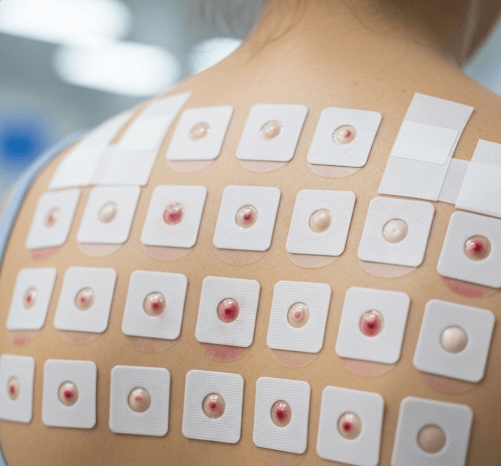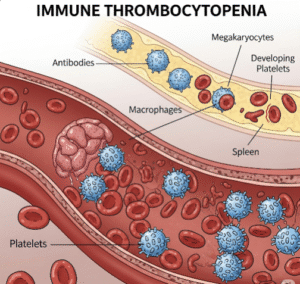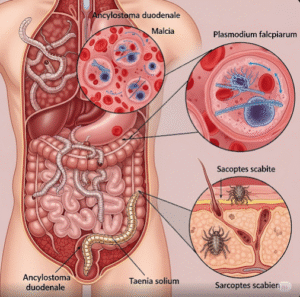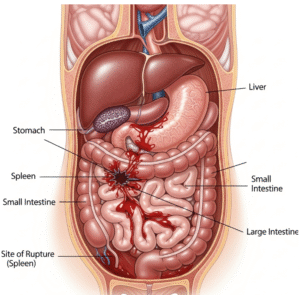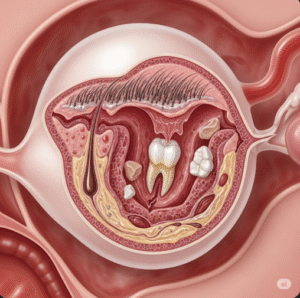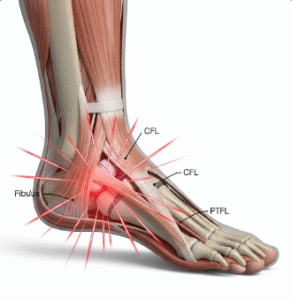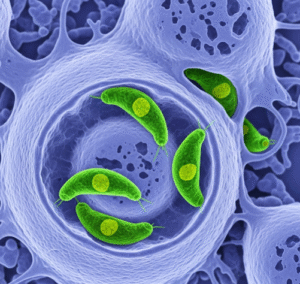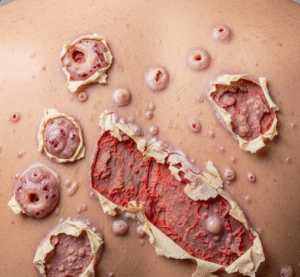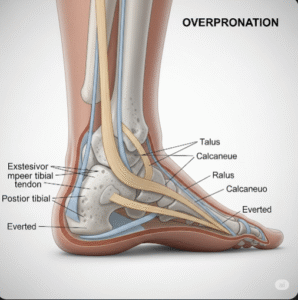➤ What it is
Patch testing is a diagnostic tool used to identify allergens that cause allergic contact dermatitis (ACD). Unlike irritant contact dermatitis, which results from direct chemical damage to the skin, ACD is an immune-mediated reaction that develops when the skin comes into contact with specific allergens.
During patch testing, small amounts of common allergens are applied to the skin (usually the back) under adhesive patches. These patches remain in place for 48 hours and are later evaluated by a dermatologist to check for reactions.
Allergens commonly tested include metals, fragrances, preservatives, rubber chemicals, dyes, and cosmetic ingredients. In Korea, test panels are expanded to reflect local exposures, such as popular K-beauty ingredients, occupational chemicals, and lifestyle-related allergens.
Patch testing is considered the gold standard for diagnosing allergic contact dermatitis and plays a crucial role in long-term management.
➤ Why it’s done
Patch testing for allergens is performed to:
- Identify Triggers → Discover the exact allergens causing skin flare-ups.
- Prevent Recurrence → Once identified, allergens can be avoided in daily products and environments.
- Guide Treatment → Helps dermatologists design personalized management plans.
- Improve Quality of Life → Reduces the burden of chronic dermatitis and flare-ups.
- Support Cosmetic Safety → Ensures patients use skincare products free of personal allergens.
In Korea, patch testing is strongly emphasized because of the prevalence of cosmetic use and cultural focus on maintaining clear, blemish-free skin. Patients often seek testing early to avoid worsening conditions and prevent scarring or pigmentation.
➤ Alternatives
Although patch testing is the standard, alternative diagnostic methods may complement or support the process:
- Prick Testing
- Used more for immediate allergic reactions (food, pollen, inhalants).
- Less helpful for delayed-type contact allergies.
- Blood Tests (Specific IgE or lymphocyte transformation tests)
- Sometimes ordered for additional confirmation, but less specific for contact dermatitis.
- Elimination and Re-challenge
- Temporarily removing suspected allergens from skincare or environment and reintroducing them.
- Useful when patch testing is inconclusive.
- Extended Panels in Korea
- In addition to international allergens, Korean patch testing panels often include unique cosmetic ingredients (like certain botanical extracts, herbal oils, and preservatives commonly found in K-beauty products).
While alternatives exist, patch testing remains the most accurate and practical diagnostic tool for allergic contact dermatitis.
➤ Preparation
Proper preparation is essential to ensure accurate patch testing results:
- Medication Adjustments
- Avoid topical corticosteroids on the test area for at least 1 week prior.
- Discontinue systemic steroids or immunosuppressants that might suppress skin reactions.
- Skin Condition
- The back skin must be free of active rashes, infections, or wounds.
- Avoid tanning or sunburn, which may alter results.
- Lifestyle Guidance
- Patients are advised not to shower, swim, or do heavy exercise during the 48 hours the patches are applied.
- Inform dermatologists about all skincare, cosmetics, detergents, and occupational exposures.
- Korean Clinical Practices
- Dermatology clinics may include pre-test barrier-strengthening skincare (hydration masks, soothing gels) to prepare skin for consistent reactions.
- Education on test-day restrictions is provided to maximize accuracy.
➤ How it’s Done
Patch testing allergens involves a structured process:
Step 1: Allergen Selection
- Dermatologists choose from a baseline allergen series, including nickel, fragrance mix, preservatives, rubber chemicals, and dyes.
- Extended allergens may be added for specific concerns (cosmetics, hair dyes, occupational chemicals).
- In Korea, allergen panels often include K-beauty-related substances such as botanical extracts, herbal oils, and preservatives found in skincare.
Step 2: Patch Application
- Small chambers containing allergens are applied to the back with hypoallergenic adhesive tape.
- The patches remain in place for 48 hours.
Step 3: Observation Period
- Patients must avoid sweating, showering, or strenuous movement.
- Korean clinics provide protective coverings and aftercare instructions to keep patches secure.
Step 4: Patch Removal and Reading
- First evaluation: after 48 hours when patches are removed.
- Second evaluation: 72–96 hours after initial placement to check delayed allergic reactions.
Step 5: Interpretation and Grading
- Reactions are graded from negative (-) to strong positive (+++).
- Dermatologists link allergens to patient exposures (e.g., nickel in jewelry, fragrance in cosmetics, preservatives in creams).
- Korean clinics often document results digitally with photographs for tracking and patient education.
➤ Recovery
Patch testing is generally safe and non-invasive, but mild reactions can occur at positive test sites:
- Mild Redness and Itching → Usually subsides in a few days.
- Small Blisters or Eczema Patches → Indicate strong positive reactions.
- Post-inflammatory Pigmentation → Rare, but possible, especially in darker skin.
Aftercare Instructions:
- Do not scratch or irritate the test area.
- Apply mild moisturizers or soothing creams if itching occurs.
- Avoid harsh cleansers or exfoliants on the back until irritation resolves.
Korean Recovery Practices:
- Many clinics offer post-test soothing treatments, such as cooling masks, LED therapy, or barrier creams.
- Patients often receive personalized skincare guidance with allergen-free Korean dermatology products.
➤ Complications
While patch testing is safe, some complications may arise:
- Persistent Local Reactions → Strong allergen responses can last a week or more.
- Pigmentation Changes → Rare hyperpigmentation or hypopigmentation.
- Flare of Existing Dermatitis → Occasionally, eczema may worsen temporarily.
- Allergen Spreading → Rarely, allergen traces can irritate surrounding skin.
Korean dermatologists are well trained in cosmetic management of complications, ensuring minimal long-term impact.
➤ Treatment Options in Korea
Korea is internationally recognized for its dermatology expertise and skin testing precision.
Why Korea excels in patch testing:
- Comprehensive Allergen Panels → Includes international standards plus locally relevant allergens (cosmetics, herbal extracts, preservatives common in Korea).
- Advanced Dermatology Clinics → Equipped with digital tools for accurate documentation and follow-up.
- Holistic Care → Testing is followed by treatment plans, skincare regimens, and educational sessions.
- Integration with Cosmetic Dermatology → Patients receive allergen-free skincare recommendations tailored to their needs.
Unique Korean Approaches:
- Customized cosmetic allergen testing → Especially important due to Korea’s extensive beauty product use.
- Combination programs → Patch testing integrated with barrier-repair facials, hydration treatments, and LED light therapy.
- Preventive focus → Patients are not only tested but also guided on long-term allergen avoidance in cosmetics, workplaces, and daily life.
- Medical tourism services → Foreign patients receive patch testing along with tailored skincare solutions.
✨ Final Thoughts
Patch Testing Allergens in Korea goes beyond simply identifying triggers. It represents a comprehensive, patient-centered approach that combines accurate testing, personalized counseling, and holistic skin care.
With expanded allergen panels, cutting-edge dermatology expertise, and integration with cosmetic-conscious management, Korea ensures that patients receive both medical clarity and practical, everyday solutions.
By helping patients discover allergens early, Korean dermatologists prevent chronic flare-ups, preserve skin health, and maintain the clear, radiant skin that is so deeply valued in Korean culture.
This makes Korea a global leader in patch testing allergens and the long-term management of allergic contact dermatitis.

